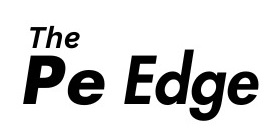.webp)
AI Meets Digital Assets: Smarter Deal Sourcing, Risk Management, and Fraud Detection
Nov 10, 2025
As private equity and venture capital firms embrace the digital asset revolution, artificial intelligence is fast becoming a differentiator for smarter, faster, and more secure investing. The intersection of AI and blockchain is not just a technological shift—it’s a strategic edge for forward-thinking investment leaders.
Here’s how AI is reshaping digital asset investing for PE and VC executives:
- Smarter Deal Sourcing: AI-powered platforms scan blockchain data, startup ecosystems, and market sentiment to identify emerging opportunities in tokenized assets, infrastructure plays, and fintech disruptors—helping deal teams move before the crowd.
- Dynamic Risk Management: Machine learning models continuously analyze on-chain transactions, liquidity patterns, and volatility signals, allowing firms to model downside risk and optimize portfolio allocation with precision.
- Advanced Fraud Detection: AI systems detect irregular wallet movements, fake volume patterns, and compliance red flags—offering a critical layer of defense against financial crime in decentralized markets.
- Operational Efficiency & Predictive Insights: Beyond sourcing and risk, AI automates due diligence, ESG scoring, and valuation modeling—accelerating decision cycles while enhancing investment discipline.
The Strategic Imperative:
According to recent industry research, over 60% of leading PE firms now deploy AI tools across at least one stage of the investment lifecycle, from deal origination to portfolio monitoring. As digital assets become increasingly institutionalized, AI integration is shifting from pilot programs to boardroom priorities.
Firms investing early in data infrastructure, model governance, and real-time analytics are positioning themselves to lead the next generation of digital asset investing—where human judgment meets algorithmic precision.
In this new era, AI-driven intelligence isn’t just redefining how firms discover value—it’s reshaping how they sustain trust, compliance, and competitive advantage. The question for C-suite leaders is no longer if AI will transform private markets, but how fast they’ll adapt to capture its full potential.

